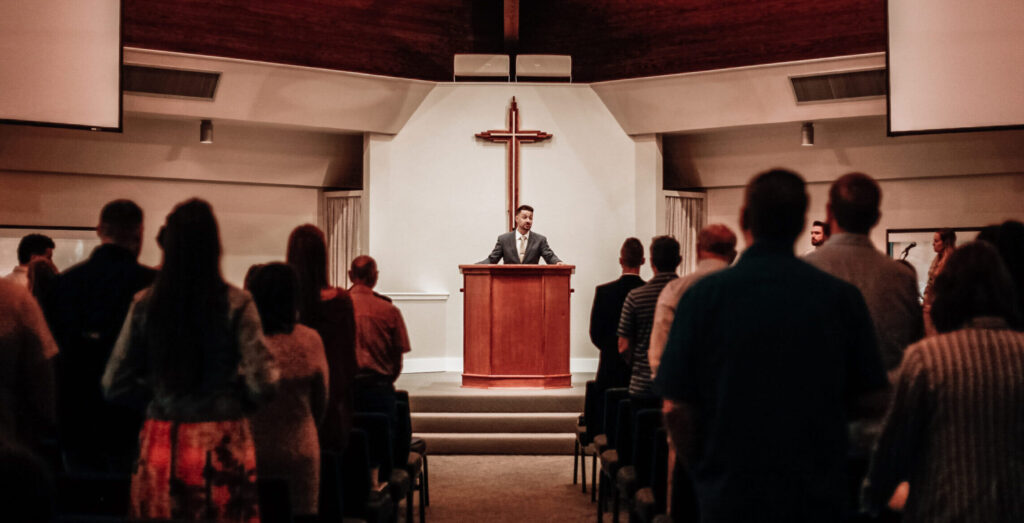God’s sovereignty is an inherent attribute, an unassailable position of authority that transcends time and earthly realms. This sovereign nature extends beyond the godhead, enveloping the church, which is known as the bride of Christ. However, modern church leaders have often misconstrued the true essence of church sovereignty due to unnecessary reliance on government endorsement and intervention. This paper aims to emphasize that the church, as a self-governing entity, should not be overseen by any governmental authority. Instead, it should adhere to a higher moral and ethical code, guided by God’s laws. History has shown that whenever the church submitted to the government, it ultimately failed and displeased God.
This paper will delve into the concept of church sovereignty, exploring its theological foundation, deconstructing different forms of government, and highlighting the imperative for the church to align itself solely with God’s authority. First and foremost, the theological basis of church sovereignty rests upon the sacred union between Christ and the church, often symbolized as the bridegroom and the bride. This divine union is not merely a metaphorical concept but a tangible reality for Christian believers. As the apostle Paul wrote to the Ephesians, “Husbands, love your wives, just as Christ loved the church and gave himself up for her” (Ephesians 5:25, NIV). This profound imagery signifies the inseparable and eternal connection between Christ and the church, mirroring the spiritual union shared by the Father and the Son.
Renowned Christian theologian Karl Barth emphasizes the theological significance of this union, stating that “the church and the triune God are not only two entities standing side by side but are in a mutual eternal existence” (Church Dogmatics, IV/1, p. 233). In other words, just as God is sovereign, so is His bride, the church, endowed with the privilege of self-governance through this divine union.
Moreover, the concept of church sovereignty finds validation in Jesus’ teachings. In the Gospel of Matthew, Jesus exhorts his disciples, declaring, “All authority in heaven and on earth has been given to me” (Matthew 28:18, NIV). This declaration reflects Jesus’ divine authority as the head of the church, bestowing upon the church its own inherent authority in the earthly realm.
The early church father, St. Augustine, offers a profound reflection on the sovereignty of the church. In his work, “City of God,” Augustine asserts that the church, established by Christ, possesses its jurisdiction and authority independent of earthly powers. He argues that “the city of God, or the holy people and the true Christian religion, is not based on worldly ambition but on the love of making progress towards the heavenly city” (City of God, Book 19, Chapter 17).
These theological perspectives from scholars and scriptures affirm the divine foundation of church sovereignty. The church, as the bride of Christ, partakes in a sacred union with its divine bridegroom, possessing inherent authority and the privilege of self-governance. By adhering to these theological truths, the church is empowered to fulfill its mission on Earth, guided by God’s laws and principles, and resisting undue interference from external forces.
Theocratic Governance
Sovereignty is a word that many people have heard concerning nations of the world. Sovereignty, in the context of nations and government, refers to the supreme authority and power of a governing body over a defined territory and its people. It signifies the ability to make decisions and enforce laws without interference from external forces. Sovereignty can be defined as:
“Sovereignty is the exclusive and independent authority exercised by a nation-state or government within its borders, conferring the absolute right to govern, make laws, and maintain order without undue external influence or control.”
While the concept of sovereignty is commonly associated with the governance of nations, it also holds significant implications for the internal affairs of religious institutions, particularly in the form of theocratic governance. Sovereignty, in an ecclesiastical or theocratic sense, is different as it disallows interference from the government with its work and interpretations of how the church should function properly.
Sovereignty encompasses the unhindered authority of the Body of Christ to govern itself autonomously, free from any external interference or influence. The key differentiating factor lies in theocratic governance, where the church’s authority is entirely derived from God and His Word, surpassing any civil laws. This distinctiveness sets the theocratic government apart from other earthly forms of governance.
In the United States, the concept of church sovereignty exists within a broader framework of diverse forms of government. This includes the federal system where power is shared between the central government and individual states, as well as the principles of separation of powers and checks and balances. While these forms of government primarily pertain to secular authorities, they have an undeniable impact on the church’s relationship with the state and other governing bodies.
The federal system’s allocation of power between the central government and individual states allows for varying degrees of autonomy for religious institutions. Through this arrangement, the church is often granted the freedom to exercise its own internal governance and decision-making processes, safeguarding its sovereign authority in spiritual matters. Simultaneously, the separation of powers ensures that the state does not encroach upon the church’s religious affairs, thereby preserving the church’s ability to determine its doctrinal principles, conduct ceremonies, and shape its internal structures.
Moreover, the checks and balances within the American governmental system play a critical role in protecting the church’s sovereignty. The judiciary, legislature, and executive branches serve as counterbalances to one another, preventing any single entity from unilaterally infringing upon the church’s autonomy or imposing restrictions on its religious practices. This system helps maintain a delicate equilibrium between the church and secular authorities, ensuring that the church can exercise its sovereignty in accordance with its theological convictions while recognizing the legitimate authority of the state within its own sphere of governance.
It is through these different forms of government that the church navigates its relationship with secular authorities. By understanding the principles of federalism, separation of powers, and checks and balances, the church can foster a relationship of mutual respect and cooperation with the state, both preserving its sovereignty and recognizing the necessary role of secular authorities in matters that pertain to the temporal realm.
Jesus, Our Ultimate Example
Pilate answered, “Am I a Jew? Your own nation and the chief priests have handed you over to me; what have you done?” Jesus answered, “My kingship is not of this world; if my kingship were of this world, my servants would fight, that I might not be handed over to the Jews; but my kingship is not from the world.” Pilate said to him, “So you are a king?” Jesus answered, “You say that I am a king. For this, I was born, and for this, I have come into the world, to bear witness to the truth. Everyone who is of the truth hears my voice.” John 18:35-37 (RSV)
Jesus Christ eloquently articulated the dichotomy between His heavenly kingship and His earthly residency. He acknowledged that His kingship did not belong to this world, as attested in John 18:36. Similarly, the church should recognize its true identity and purpose, regardless of temporary earthly allegiances. While striving for peaceful coexistence within local, state, and federal governance, the church is mandated to prioritize its biblical principles and spiritual convictions. Governmental directives that contravene these convictions necessitate the church’s allegiance to God rather than accommodating governmental overreach and the disregard of Christ’s position.
Church sovereignty is a divine principle essential to the self-governance of Christ’s bride. A thorough understanding of this concept allows the church to transcend government oversight and fulfill its mission without compromise. By aligning with God’s superior moral and ethical standards, the church safeguards its inherent sovereignty and remains faithful to its divine purpose and its first love.
Dr. Aaron Lewis, November 17, 2023
References:
In the context of God’s authority, the Holy Bible serves as the foundational text for understanding the principles of theocratic governance (2 Timothy 3:16).

